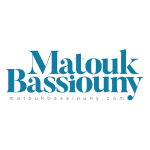Since the beginning of 2020, Algeria has embarked on what is probably its most ambitious reform programme of its legal framework to open its market to foreign investors.
Since the issuance of the 2020 Finance Law (FL 2020) in December 2019, the Algerian authorities have removed most of the restrictions curtailing foreign investment, namely the state’s pre-emption right on the transfer of shares by or to foreign shareholders, the prohibition on investors to finance their projects in Algeria with facilities from foreign lenders, and the famous ‘49/51 rule’ pursuant to which the capital of Algerian companies must be at least 51% owned by Algerian resident persons or entities, thus limiting foreign investors’ stake to 49% (the 49/51 rule).
By any measure, the 49/51 rule had become the most notorious symbol of challenges impeding foreign investment. The 49/51 rule used to be applicable across the board to all industries. The FL 2020 provided that the 49/51 rule shall apply only to purchase and resale activities and to sectors considered as ‘strategic’.
Since then, other laws and regulations have been issued to complete, clarify and detail the application of such rules in addition to amend other regulations. Such restructuring of foreign investment framework is emphasised by the need of Algeria to diversify its economy and create an autonomy from the oil and gas industry, which has been the main source of income of the country in terms of hard currency. Creating a balance between opening its market and protect its fragile emerging economy, while stimulating a recovery after years of closure is the challenge facing Algeria.
In this article, the 49/51 rule is introduced, efforts to alleviate it are considered, and there is an update on the few remaining sectors to which the 49/51 rule still applies.
Background
Since 2009, foreign ownership in an Algerian company had been capped to 49%, though companies which were incorporated before 2009 with foreign ownership exceeding 49% were exempted from the 49/51 rule. However, such exempted companies were not allowed to register certain amendments to their commercial register, including any transfer of shares, unless they comply with the 49/51 rule.
The limitation of any foreign shareholding in an Algerian company to 49% was initially introduced by the Supplemental Finance Law for 2009. The 49/51 rule was the first of a series of stringent rules introduced in 2009 and 2010 with a view to asserting the government’s control over foreign investments including the state pre-emption right over any transfer of shares to or from a foreigner.
The alleviation of the 49/51 rule
The first important change to the 49/51 rule was initiated under the FL 2020, which loosened the application of the 49/51 rule. The FL 2020 provided that the 49/51 rule shall only apply to “production and service activities which are strategic for the national economy”. Accordingly, the FL 2020 has transformed the 49/51 rule from a general rule to a rule of exception by means of limiting its application to strategic sectors.
|
|
“Amid the Covid-19 pandemic and social unrest as result of the Hirak movement, Algeria has nonetheless successfully managed to revamp its investment framework to attract foreign investors” |
|
|
Pursuant to the Supplemental Finance Law for 2020 (promulgated on June 4 2020, the SFL 2020) and to the Finance Law for 2021 (promulgated on December 31 2020, the FL 2021), sectors which remain subject to the 49/51 rule include importation for resale without transformation and the following strategic sectors mining, energy, defense, transport infrastructure, and pharma.
A recap is provided below for each of these sectors, together with a few other sectors which remain subject to the 49/51 rule based on industry specific legislations.
Sectors which remain subject to the 49/51 rule
Importation activities
The SFL 2020 provided that, in addition to the strategic sectors, any activity consisting in “the purchase and resale of products” shall be subject to the 49/51 rule. Such broad definition, which included both retail and wholesale activities, drew a lot of criticism.
The FL 2021 restricted the application of the 49/51 rule to companies undertaking the activity of importation for resale without transformation. Furthermore, companies involved in such importation activities which do not comply with the 49/51 rule have until June 30 2021 to do so, failing which their trade registration will be deemed void. The retroactivity of such a rule sparked a lot of scepticism and raised voices with regards to the constitutionality of such a requirement.
A draft of the Supplemental Finance Law for 2021 (SFL 2021) – expected to be passed by the end of June – dated May 3 2021 has removed the obligation to become compliant with the 49/51 rule by June 30 2021 for existing importation companies. If this removal is confirmed by the SFL 2021, existing importation companies shall be considered as exempted from the obligation to comply with the 49/51 rule which shall apply only to newly established companies.
Strategic sectors
The list of strategic sectors which remain subject to the 49/51 rule has been provided by the SFL 2020. It includes the five following sectors.
Mining: mining operations, including the exploitation of any underground or surface resources relating to an extractive activity, but excluding quarries of non-mineral products;
Energy: the upstream energy sector and any other activities falling within the scope of the law on hydrocarbons (which includes the downstream energy sector), the operation of distribution networks, the transportation of electricity by cable, and the transportation of gas and liquids by overhead or underground pipelines;
Defense industry: the military industry and related activities under the authority of the Ministry of National Defense;
Transportation infrastructure: railways, ports and airports; and
Pharmaceutical sector: the pharma industry, excluding investments for the manufacturing of essential and innovative products with a high added value, requiring a complex and protected technology and to be sold on both the domestic and export markets.
In April 2021, an executive regulation has been issued (Decree 21-145 dated April 7 2021 setting forth the list of activities considered as strategic) to set forth the detailed activities (based on the classification of the trade register) which fall within the scope of the above strategic activities (except for the defense industry).
While such clarification is very helpful, there are still some questions about the actual scope of strategic activities subject to the 49/51 rule, in particular with regards to the pharma industry. Certain criteria to exempt players in the pharma industry from the 49/51 rules can be subject to interpretation (the requirement to manufacture ‘essential and innovative products’) and hopefully these will soon be clarified with executive regulations.
Moreover, it is worth noting that renewable energy is not included within the list of strategic sectors. As a result, independent electricity producers would no longer be subject to the 49/51 rule. This may create unique market opportunities for players in the field of renewables, especially when considering that Algeria is initiating a national green energy project with an ambitious programme for the development of renewable energies (RE) and energy efficiency.
This vision of the Algerian government is based on the renewable energy programme consisting of installing a power of renewable origin of the order of 22,000 MW by 2030 for the national market, with the maintenance of the export option as a strategic objective, if the market conditions allow it.
Automotive industry
With the objective of promoting its local car manufacturing industry and preserving the country’s foreign exchange reserves, the Algerian government has passed stringent legislations over the last few years in order to curb the importation of new vehicles.
In 2016, import quotas were imposed and since 2018 all importation of new vehicles has been suspended. However, Algeria’s nascent car manufacturing industry is facing a crisis and the market is undersupplied in new vehicles. In order to relaunch imports, an entirely new regulatory framework for the importation and resale of new vehicles has been issued in August 2020 (Decree 20-227 dated August 19 2020, the Automotive Decree).
|
|
“Algeria is initiating a national green energy project with an ambitious programme for the development of renewable energies and energy efficiency” |
|
|
The main requirements under the Automotive Decree include a restriction on the importers/dealers which must be 100% owned by Algerian residents, hence foreign investors are excluded (noting that foreign investors are not subject to the 100% requirement for the distribution of cars they manufacture locally) in order to encourage local manufacturing.
It is worth noting that the scope of the Automotive Decree does not include the importation of spare parts, which is subject to a 51% Algerian ownership (pursuant to the 49/51 rule) instead of 100% for the importation of new vehicles.
The exclusion of foreign investors from the importation and resale business of vehicles is a significant concern for foreign investors in Algeria. Hence, it is not impossible to rule out that such a requirement may be lifted or softened in the short run. Furthermore, a new Minister of Industry was appointed in February 2021 with a clear mission to revive the automotive sector.
Tobacco
The tobacco industry in Algeria had been under the monopoly of the National Tobacco and Match Company (SNTA) up until 2004 (Executive decree 04-331 dated October 18 2004), when the sector was liberalised and private companies were allowed to enter the market, such as the Algerian-Emirati tobacco company (STAEM) and British American Tobacco.
The decree regulating the production and distribution of tobacco products provides for the requirement to create a partnership with a foreign with at least 51% of the capital. Interestingly, the obligation in this case is quite different as it provides for the necessity for Algerian investors to have a foreign partner for at least 51%.
It is to be noted that the government has lately examined a draft executive decree amending and supplementing the executive decree of 2004 regulating the activities of manufacturing, importing and distributing tobacco products. This draft allows national players to operate on the market without the requirement to be associated with a foreign partner.
Banking
While banking does not appear on the list of strategic sectors, it remains subject to the 49/51 rule based on regulations specific to the banking industry (Ordinance 03-11 dated August 26 2003). As state-owned banks in Algeria continue to predominate through the size of their network and their branches widely spread throughout the country, the dynamism of certain private banks in recent years has been consequent.
Amid the Covid-19 pandemic and social unrest as result of the Hirak movement, Algeria has nonetheless successfully managed to revamp its investment framework to attract foreign investors. The partial removal of the controversial 49/51 rule has been a major milestone and a positive message has been sent to investors. It is hoped that the relevant executive regulations will soon further clarify the scope of the 49/51 rule for the pharma industry and the exemption from the 49/51 rule for existing importation companies.
Click here to read all the chapters from IFLR's Africa Market Makers 2021

Houda Sahri
Managing partner, Algiers office
Matouk Bassiouny in association with SH Avocats
T: +213 23 46 10 55
E: houda.sahri@matoukbassiouny.com
Houda Sahri is the founding and managing partner of SH Avocats, which works in association with Matouk Bassiouny in Algeria.
Prior to founding the firm, Houda started at the Algerian Bar working in renowned Algerian law firms, and then pursued her career as the head of the legal team at KPMG Algeria. She later worked as the general counsel for Algeria at LafargeHolcim and as the MENA regional counsel at the US group, GE Power. She advises on a broad range of corporate, commercial and finance matters. She also regularly handles litigation matters, and presents cases before Algerian courts.
Houda has a master’s degree in law from Algiers University and completed a MBA at the University of Bridgeport.

Jean-Jérôme Khodara
Partner, head of the Algeria practice
Matouk Bassiouny
T: + 202 2796 2042 (ext 731)
E: jj.khodara@matoukbassiouny.com
Jean-Jérôme Khodara is a partner in Matouk Bassiouny’s corporate and M&A practice group, and is the head of the firm’s Algeria practice.
Prior to joining the firm, Jean-Jérôme worked with the French international law firm Gide Loyrette Nouel and the group LafargeHolcim, where he was in charge of M&A transactions in Africa and the Middle-East, including Algeria where he was based for over a year. He advises on corporate transactions with a focus on complex cross-border deals. His expertise includes the setting-up of joint ventures, as well as managing all phases of M&A transactions, including structuring, negotiation and drafting the transaction documents.
Jean-Jérôme holds a master’s degree from Paris 2 Panthéon-Assas University, a LLM from the University of Rennes, and a further LLM from Exeter University. He has also completed a master’s in public administration from Harvard University.

Nahla Djabi
Senior associate
Matouk Bassiouny in association with SH Avocats
T: + 213 23 46 10 55
E: nahla.djabi@matoukbassiouny.com
Nahla Djabi is a senior associate with Matouk Bassiouny’s corporate and M&A practice group in Algeria.
Prior to joining the firm, Nahla worked with law firms in Cairo and as an in-house counsel with multinational companies such as LafargeHolcim, Egyptian Steel and ABB. She specialises on M&A transactions, as well as general corporate and commercial matters in Algeria and Egypt. She also regularly advises private equity firms on complex M&A transactions.
Nahla has a bachelor’s degree from the University of Algiers and a master’s degree from Paris 1 Panthéon-Sorbonne University.





